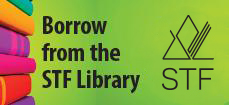Course Configurations
| (a) | Provide examples of common financial contracts for goods and services such as cell phones, gaming program purchases and related electronic devices, vehicles, credit cards, warranties, housing, lines of credit and loans. |
| (b) | Identify the components of a financial contract (e.g., legal names and addresses of all parties; clear, detailed description of the goods or services to be provided; price and payment terms; and responsibilities). |
| (c) | Discuss the role of a guarantor such as a parent or guardian and the risks associated with being one. |
| (d) | Discuss the rights and responsibilities of the signatories of a financial contract. |
| (e) | Discuss how a salesperson of goods and services is paid (e.g., commission and salary/wage) and the how marketing psychology may influence the sales tactics used to secure financial contracts. |
| (f) | Examine factors that could lead to a breach of contract and the potential resulting consequences. |
| (g) | Investigate components such as subscription-renewals, termination and extended warranty information that are often included in the fine print of a financial contract and that are commonly misinterpreted or overlooked by the signer. |
| (h) | Construct contracts for fictitious scenarios. |


- Homebuying Step By Step: Workbook and Checklists

This Canadian resource supports the Financial Literacy curriculum and provides information at a suitable introductory level. The resource is organized under six headings for a total of 15 modules.
Topics covered:
- Goals, Values and Decision-making
- Getting and Earning Money
- Spending Money and Taking Control
- Borrowing Money and Using Credit
- Saving and Investing Money
- Protecting Assets and Planning for the Future.
The resource includes:
- Student Guide, English or French, free online PDF version or hard copies can be ordered at a minimal fee
- Teacher's Guide, English or French, free online version
The Indigenous Edition of Money and Youth builds on the original resource from the Canadian Foundation for Economic Education, CFEE. Damon Johnston, President of the Aboriginal Council of Winnipeg, provided guidance rooted in traditional teachings and the Seven Sacred Laws. Vanessa Everett, CEO of Economic Development with the Keewatin Tribal Council, adapted the original version by Gary Rabbior of CFEE. Input from respected individuals across Turtle Island also helped shape this edition.
Topics covered:
- Goals, Values and Decision-making
- Getting and Earning Money
- Spending Money and Taking Control
- Borrowing Money and Using Credit
- Saving and Investing Money
- Protecting Assets and Planning for the Future.
The resource includes:
- Student Guide, English, free online PDF version or hard copies can be ordered at a minimal fee
- Teacher's Guide, English, free online version



